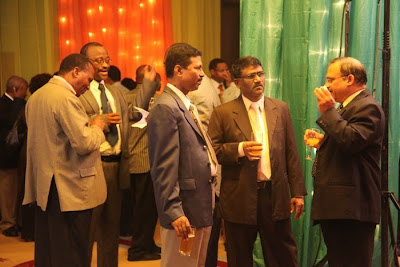
By Stephen Kasaija
In Summary
Many beneficiaries have saved money and made
investments like buying livestock such as chicken, pigs, goats - which
themselves produce and provide a security of income on their own. With
security of income, people become empowered.
In its editorial of April 8, 2013 entitled
“Tokenism will not help senior citizens,” the Sunday Monitor argued that
rather than give grants (what it called tokenism) in direct income
support, the government would rather ensure food security, provide an
efficient health insurance etc. And that; “Pursuing a tokenism approach
might win political plaudits but it will not solve the problem.”
In this rejoinder, I would like to show that the
Senior Citizens Grant under the Expanding Social Protection Programme,
is not just a token to older people, but rather it is a major, novel
development intervention. Secondly, far from the claims that the
Shs24,000 that beneficiaries receive is too little, this money is
helping these people to change their lives - and some - fundamentally.
For starters, today all over the world, social
protection is recognized as a critical component of national development
plans and strategies. Many countries recognise social protection as
critical to achieving inclusive, pro-poor and equitable development for
their people. By social protection, I mean interventions put in place to
address vulnerability and poverty. Many countries provide direct income
support through regular and predictable transfers of money to
vulnerable groups of citizens. These vary depending on the vulnerability
targeted; it could be disability grants, child grants, orphan grants,
senior citizens grants (like in Uganda’s case) or indeed any other form
of grant.
There are many examples that one can cite even around the sub-Sahara Africa region; Kenya, Lesotho, Namibia, Botswana, Swaziland, Zambia, South Africa, among others, all provide senior citizens grants (never mind whatever name they call it). Namibia, Kenya, South Africa, provide disability grants, just to name a few.

In fact provision of direct income support (also called cash transfers) is now a subject of intense discourse in the international development arena. There are several studies that have been done or are ongoing on the impacts, benefits, etc of direct income support.
So far the consensus from evidence is that giving
poor and vulnerable people small, regular and predictable amounts of
money helps them not only to access the basic needs, it also provides
them the platform on which they can launch their quest to get out of
poverty. This is the topic of a 2010 book published by University of
Manchester (UK) professors, Joseph Hanlon, Armando Barrientos and David
Hulme called, “Just Give Money to the Poor: A Development Revolution
from the Global South.” This book provides very interesting readingwith
anecdotal evidence of impact of direct income support from Latin America
through Africa to Asia.
As far as the impact of the Shs24,000 is concerned, we don’t need to look far as evidence is already emerging in the districts where the grants are being piloted. True to a Kampala middle income earner, Shs24,000 is pocket change; but it’s not in rural areas. We have read stories in the media where folks stoop so low that for Shs1,000 they can strip and walk around naked. We have read stories of how people maim children for losing Shs500.
We now know that the Senior Citizens Grants are enabling beneficiaries to provide better meals for their households and cater for their health and education needs of children under their care. Many beneficiaries have saved money and made investments like buying livestock such as chicken, pigs, goats - which themselves produce and provide a security of income on their own. With security of income, people become empowered. Of course at the wider community level, we notice that business is booming in the local trading centres because cash is being injected into the local economies; the local traders are reporting high turn-over of stock; there is market for local goods and services.
Mr Kasaija is the Head, Expanding Social Protection Programme




No comments :
Post a Comment